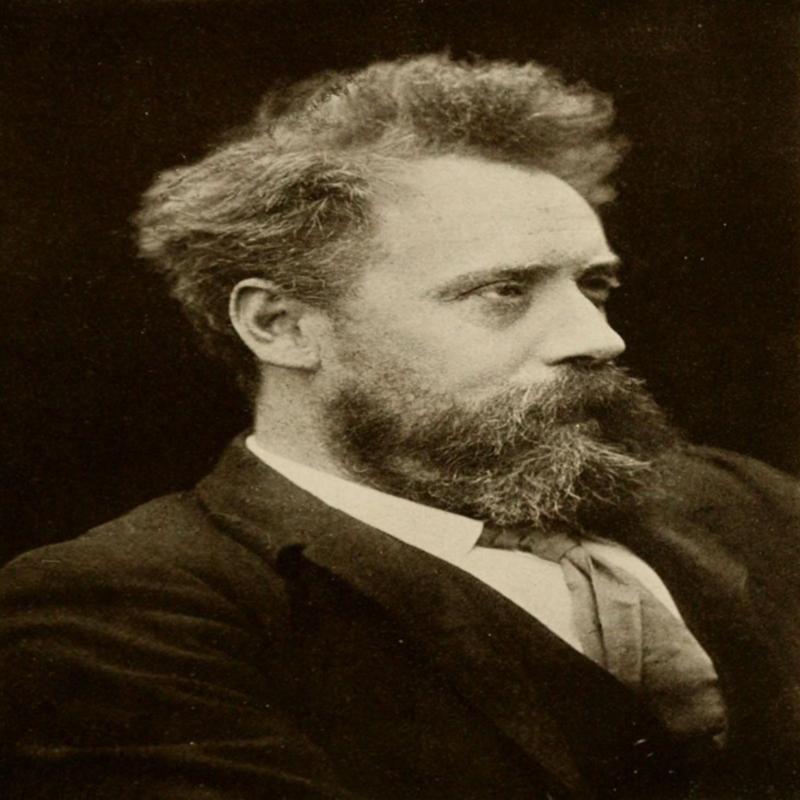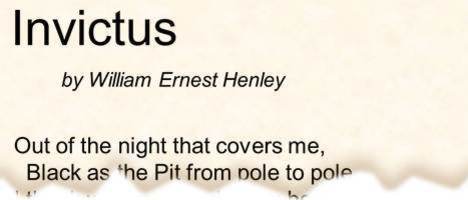William Ernest Henley: Invictus
Posted on 23rd October 2021
Barely remembered now as an influential literary critic of the late Victorian era William Ernest Henley nonetheless produced a poem oft quoted by Presidents and Kings that has endured far beyond the fleeting career of its author.
His Invictus, written in 1875 as he lay bed-ridden suffering from tuberculosis and awaiting the amputation of his leg is a tale of the unconquerable human spirit that shines a light where darkness prevails and triumphs over adversity regardless of the odds.
It was originally untitled, the Invictus, or Latin for undefeated, was provided later by his publisher and was just one of a series of poems written whilst he was in hospital but it, more than any other, captured the Victorian zeitgeist. It is most famous now as the poem that Nelson Mandela learned by heart and would recite to his fellow prisoners on Robben Island to raise their spirits.

Henley, who knew all about adversity having endured a childhood of poverty and in adulthood constant ill-health died in 1903, aged just 53, from the disease that had tormented him for much of his life; but with his passing he left a legacy that continues to inspire to this day and has a standing that goes far beyond the relative obscurity of its author.
IOut of the night that covers me,
Black as the pit from pole to pole,
I thank whatever gods may be
For my unconquerable soul.
In the fell clutch of circumstance
I have not winced nor cried aloud.
Under the bludgeoning of chance
My head is bloody, but unbowed.
Beyond this place of wrath and tears
Looms but the Horror of the shade,
And yet the menace of the years
Finds, and shall find me, unafraid.
It matters not how strait the gate,
How charged with punishments the scroll,
I am the master of my fate:
I am the captain of my soul.
Share this post:





